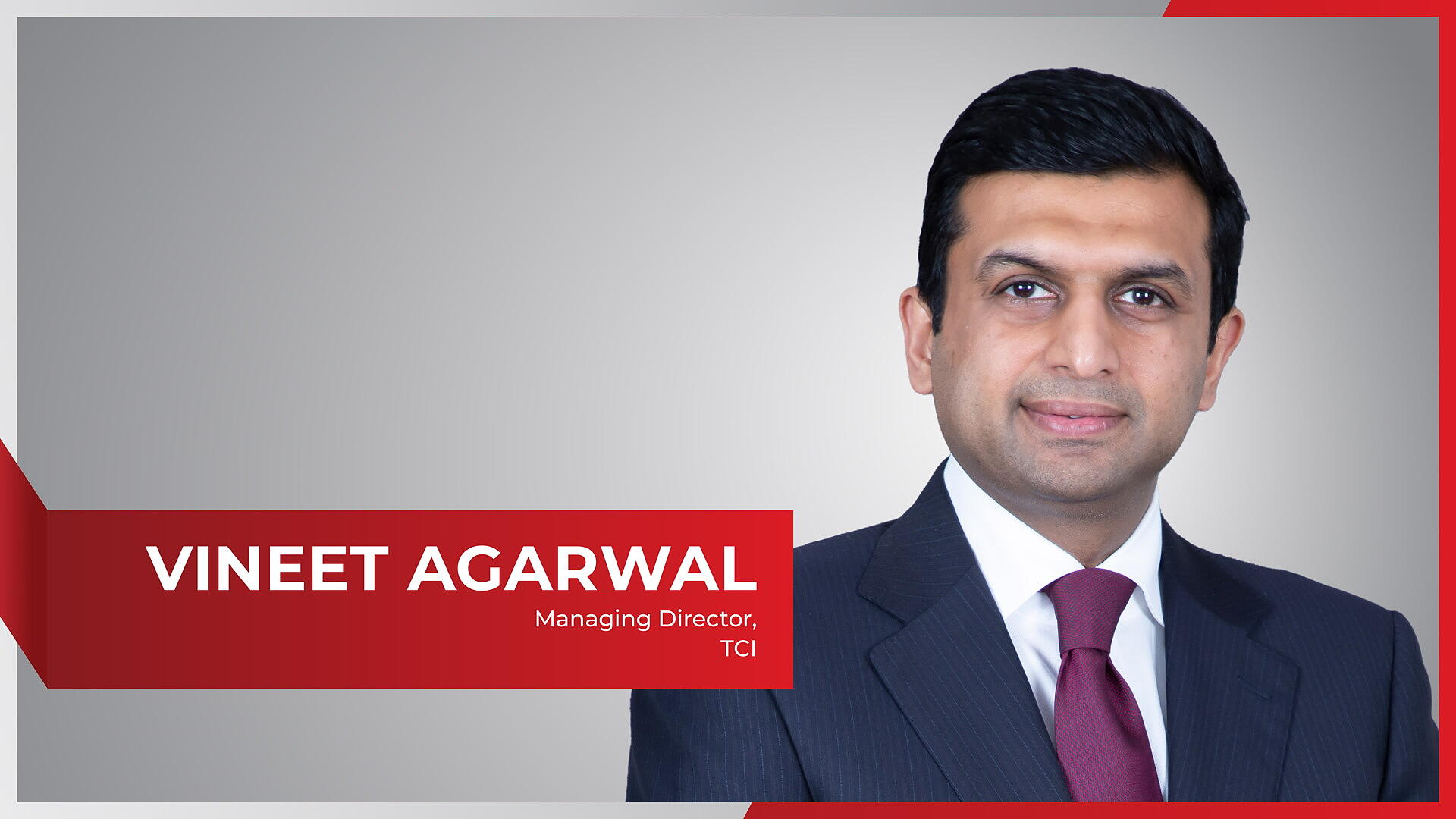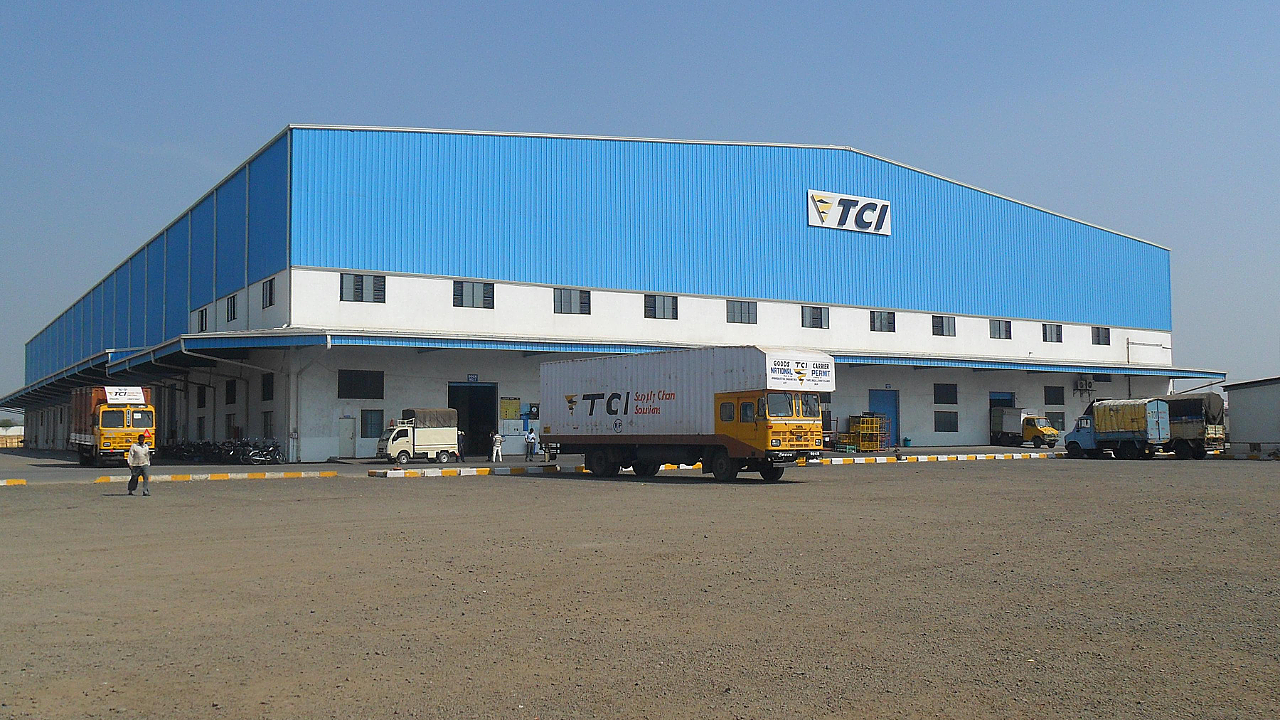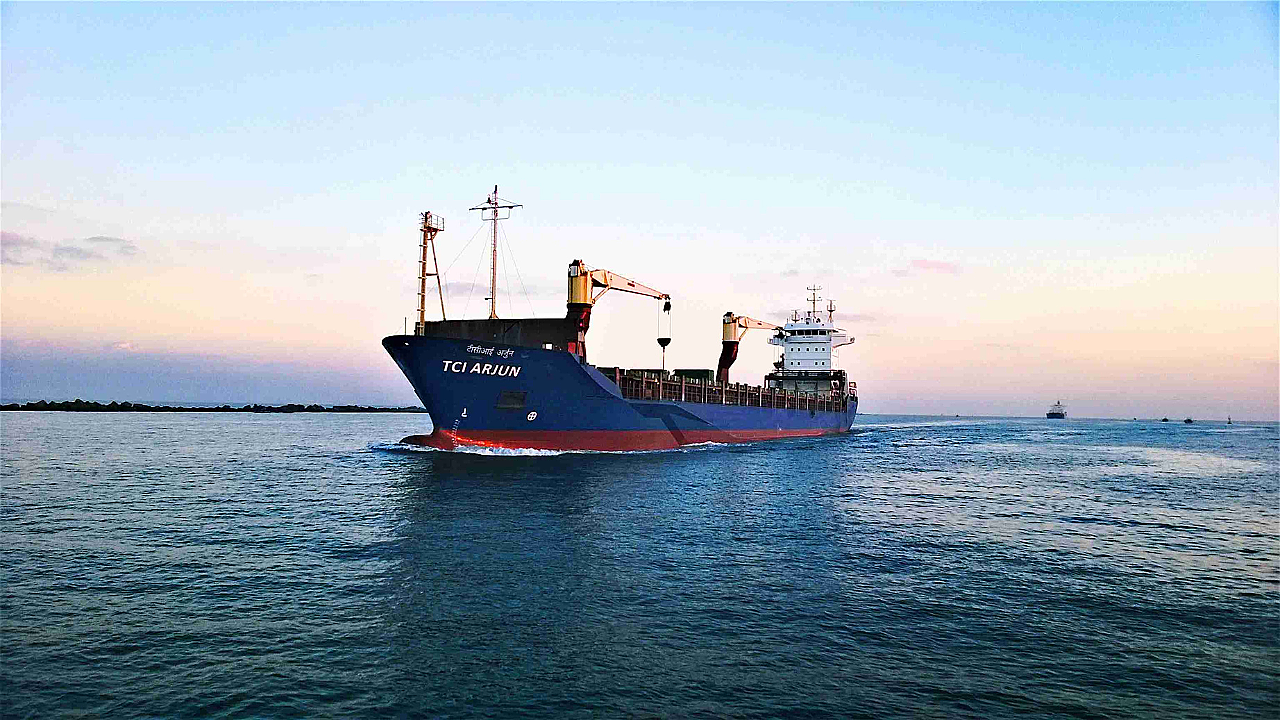
Vineet Agarwal, Managing Director, Transport Corporation of India (TCI) heads an integrated supply chain and logistics solutions provider with revenues of over INR 5,000 crore. He joined TCI in 1996 as the Executive Director and currently also serves as the President of ASSOCHAM and is on the Board of National Skills Development Corporation (NSDC) and the National Start-up Advisory Council. He graduated from Carnegie Mellon University and the Owner President Management programme from Harvard Business School.
Please talk about the growth prospects for TCI, now that the COVID-19 pandemic is under control.
From a business perspective, we were able to grow even during the pandemic and subsequent to that, have continued to grow because we had the right product mix of transport solutions by road, rail, sea, etc. Even during the pandemic in India, transport of freight by road had come down but rail was doing quite well. So, we were able to grow our business.
Companies also wanted more warehousing space at that time and as a result, we were able to grow our warehousing business. Our portfolio mix has allowed us to capture certain growth segments despite upheavals such as the COVID-19 pandemic.
In 2022, the auto sector was not doing too well due to supply constraints. However, our shipping business did quite well, because we went overseas to some locations, opportunistically to move cargo and containers. This year, however, international freight rates have come down, but the auto sector is doing well. So, as you can see, the portfolio mix has helped us to keep a consistent growth trajectory in all our businesses.
Looking at India’s GDP growth, even at 6-7% there is clearly a lot of opportunity for growth for us. Even as volume of the market grows, the market itself is becoming more organised, which is an opportunity for TCI. From all these perspectives, I do see that growth opportunities will be quite robust.
What are some of the positive trends that you observe for the future growth?
We are bullish on growth as we operate in several areas. The next few years are likely to present good opportunities for us. While we have not come up with a guidance yet for FY24, we are looking at a top line growth of 10-15%. As a result of the Government’s push on infrastructure, there is a lot of expenditure with a clear cut tangible benefit for us, in the movement of steel, cement, and earthmoving equipment. Infrastructure growth along with the GDP growth will definitely provide an impetus to business for logistics companies.
With the auto sector seeing robust growth, I think there are opportunities in various sectors of mobility from not just four-wheelers, but also commercial vehicles, tractors, earthmoving equipment, two-wheelers, etc. We are seeing that tractors are doing relatively well.
Increased consumer demand for goods will also drive demand, especially in terms of e-commerce, which gives us opportunities for warehousing and creating fulfilment centres. We do a limited amount of work on the aviation and defence side, which is mostly on specific contracts and government contracts once in a while.
We are also seeing increased demand for shifting of cargo by sea, as it is cheaper, more efficient and has better green footprint. As a green and environment friendly option, we are seeing a lot of companies looking at coast to coast in a bigger way.
For example, if a company is moving some cargo from North India all the way to, let's say Cochin, we offer the customer a service, where the cargo is transported by road or rail to the Kandla port, and then transfer the container by sea to Cochin, from where it is then delivered to the final destination by road.
This is purely a multimodal activity, and while the time taken could be the same, or maybe slightly more, the cost is slightly lower. However, more importantly, the carbon emissions are quite low. For all these reasons we believe that this model of cargo transport will continue to grow in the next few years and even the government is putting a lot of focus on improving multimodal logistics.

Could you elaborate on how you are working towards electrification of your road transport fleet?
We are looking at several aspects to reduce the environmental footprint of our trucks. As you know, we have trucks that operate across long distances and those that operate for shorter distances of 300-400 km. In the next few years, we are of the view that the trucks used for shorter distances would be electric vehicles and a combination of CNG trucks.
We are running pilot projects for testing EVs and working on the charging infrastructure for our last mile connectivity fleets and in some areas, for our short-haul fleets. We are using a lot of CNG trucks already and have converted quite a few vehicles from our existing fleet into CNG.
For long-haul, where the distances travelled are much larger and more of a hub-to-hub operation, one can expect to see CNG or LPG trucks emerge over the next 5-7 years. There could also by hydrogen-powered trucks in this segment.
This is how we think the sector would mature. Of course, these timelines could all change due to the growth of hydrogen technology, availability of charging points or availability of LPG and CNG on the highways and so on.
What have been the benefits to TCI due to implementation of GST, FASTag and improved road infrastructure in India?
With the implementation of GST, RTO checkpoints for trucks have been reduced considerably and facilitated smoother and more efficient transport of road cargo. The expansion of India’s road network and better quality highways and the use of FASTag have vastly improved the overall productivity and efficiency of movement of trucks.
While I will not be able to quantify that number, I think a generalised number for the improvement in percentage terms would be around 5-10% overall. Of course there are more visible changes in some regions as compared to others. FASTag has made a dramatic difference in reducing the wastage due to trucks standing idle.
However, there are still some problems are on the last mile. The entry and exit into cities is still a little complicated and this slows down vehicular movement. Greater importance needs to be given to last-mile connectivity. With traffic volumes only expected to increase, we need to build the required infrastructure in cities and newly emerging towns.
There is clearly need for more warehousing infrastructure, so that the larger trucks can unload their material and smaller trucks transfer the cargo into cities and towns. All of those requires constant and a regular push. However, broadly speaking, things have improved to a large extent.

What were the learnings for TCI from operating during COVID-19?
During the pandemic, the most important things was for us to get organised internally and being able to service our consumers in whatever manner and form that they needed. We were able to display the agility and resilience needed to operate in such a difficult environment. We have now ensured that this resilience is part of the system and there is no place where business can stop.
Apart from that, there has been a shift towards digital transformation in the last three years and even before that. We have been doing a lot of work in that area and accelerating our efforts in this arena. I think as an organisation, we are definitely a lot better prepared for future growth opportunities.
Also Read
TCI Posts INR 1,658 Crore Revenue In H1FY23
TCI Sees No Immediate Need To Invest In Alternative Fuels